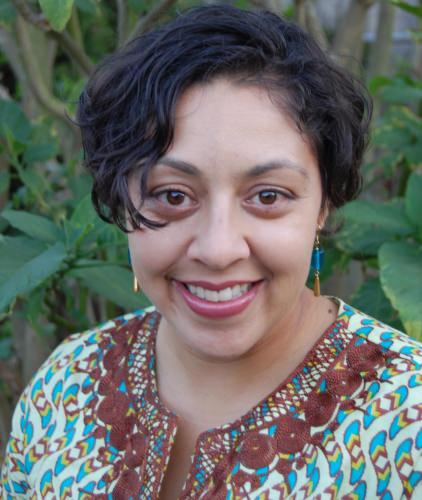New faculty focus: Maxine McKinney de Royston

Assistant professor, Department of Curriculum & Instruction • Hometown: Minneapolis • Educational background: Bachelor’s degree in political science and African American studies, Smith College, 1999; Ph.D. in Education, University of California, Berkeley, 2011; postdoctoral fellow, Center for Urban Education, University of Pittsburgh
Q&A
How did you get into your field of research?
I have been interested in issues of race and identity in schools since being a K-12 student who noticed racial and social inequalities in my mathematics classrooms and the schools that I attended in suburban and urban districts. Working with some incredible undergrad and grad school mentors, I learned how to turn these “people watching” tendencies into methods of inquiry and analysis that can support how we (think about or rethink) teacher practices and education.
What attracted you to UW–Madison?
UW-Madison has an illustrious history as a site of intellectual freedom and critical engagement in society. Both are key to my work as a researcher and educator.
What was your first visit to campus like?
It was rainy and cold outside (it was spring), but everyone I met was warm and welcoming.
Favorite place on campus?
Memorial Union Terrace.
What are you most enjoying so far about working here?
The School of Education has a number of faculty who are known for their top-notch scholarship and commitments to social and racial justice. I’m excited to learn from and work with such an amazing group.
Do you feel your work relates in any way to the Wisconsin Idea?
My research is dedicated to examining issues of racial and social inequality and improving the learning experiences and opportunities for students, especially racially non-dominant students. This work is related to the Wisconsin Idea if we take seriously its aim to improve the quality of life of “everyone” and not just some.
What’s something interesting about your area of expertise you can share that will make us sound smarter at parties?
Nearly everyone who has been schooled in the U.S. in the last few decades has a trauma story about learning math, and the retelling of these stories often results in a proclamation that some people are “math people” and others aren’t. This statement not only reproduces racial and gender stereotypes, it’s flat out wrong. We use math every day, often unknowingly and without much thought. You don’t have to dream about linear functions and be a math major to count as someone who can do, or likes to do, math.
Hobbies/other interests:
Cooking and doing crossword puzzles.
Tags: faculty
